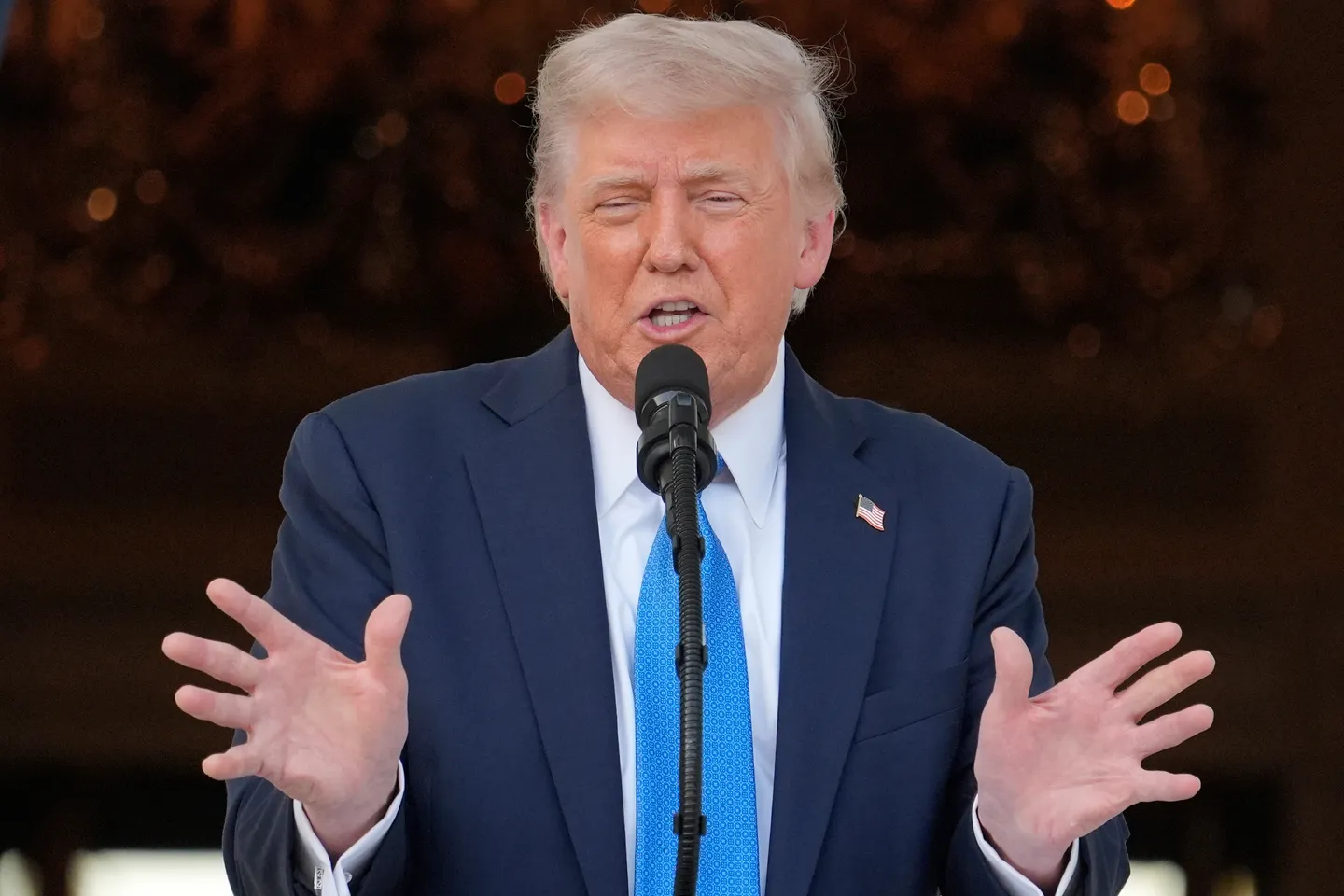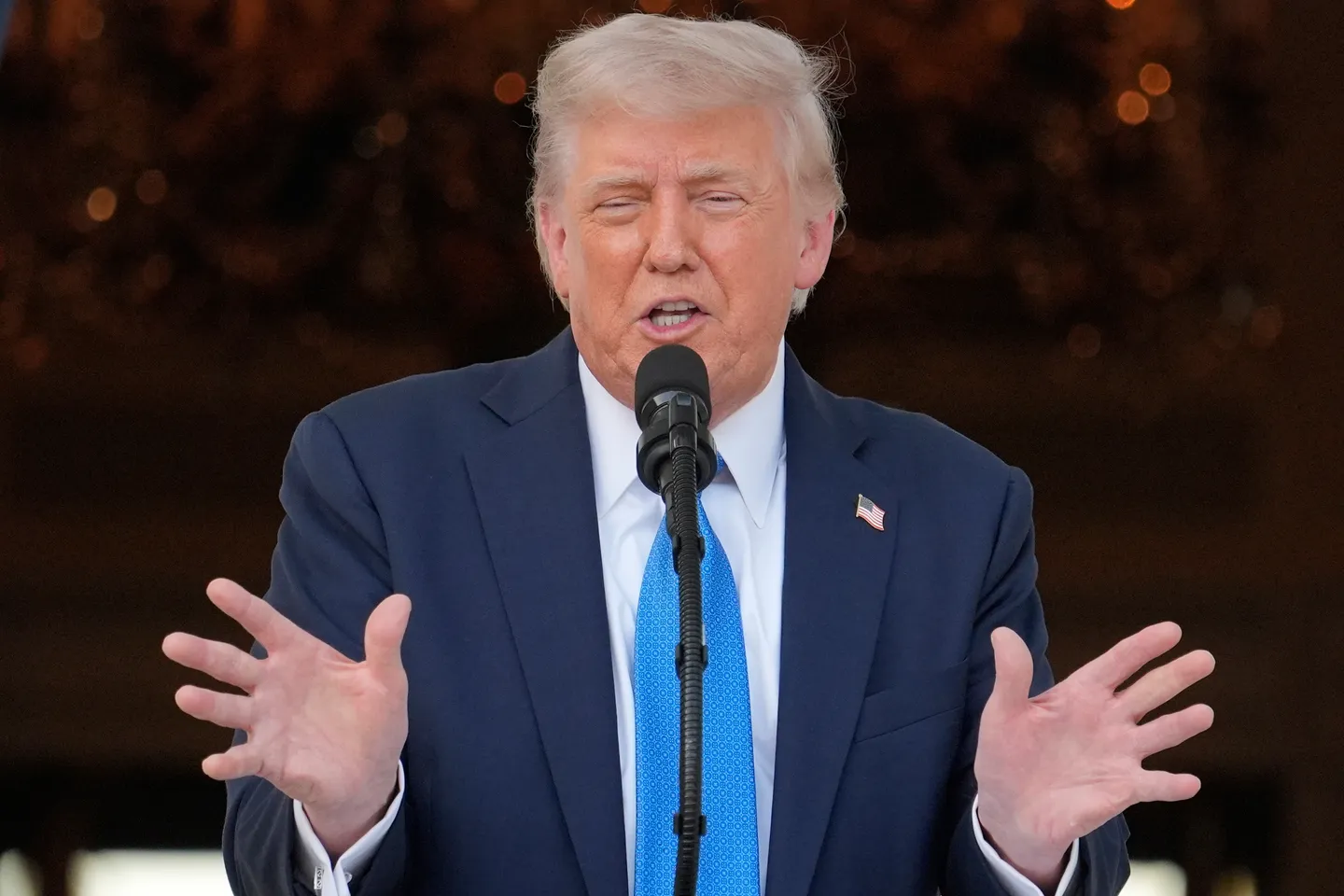 Former U.S. President Donald Trump has announced a new travel ban affecting citizens from 12 countries, a move that has sparked widespread international reaction and raised concerns over diplomatic relations and immigration policy. The list of targeted countries is heavily concentrated in Africa, making it a particularly contentious decision that is already drawing criticism from several human rights organizations, foreign governments, and policy analysts.
Former U.S. President Donald Trump has announced a new travel ban affecting citizens from 12 countries, a move that has sparked widespread international reaction and raised concerns over diplomatic relations and immigration policy. The list of targeted countries is heavily concentrated in Africa, making it a particularly contentious decision that is already drawing criticism from several human rights organizations, foreign governments, and policy analysts.
The new restrictions, which the Trump-aligned policy team claims are rooted in national security concerns, are being framed as part of a broader agenda to “protect American borders and interests.” According to the statement released by his team, the travel ban is aimed at curbing potential threats from countries that, in their assessment, fail to meet U.S. standards for information-sharing, border security, and counterterrorism cooperation.
Among the countries affected are Nigeria, Sudan, Eritrea, Tanzania, and the Democratic Republic of Congo, all of which are major African nations with significant diasporas in the United States. Others included in the expanded ban span across the Middle East and Asia, though Africa dominates the list both in numbers and population impact. The restrictions vary from outright bans on immigrant visas to targeted limitations on specific categories such as diversity visas or work permits.
Critics argue that the decision is a politically motivated maneuver, lacking strong evidence that travelers from these countries pose a unique threat. Civil rights organizations have accused Trump and his advisors of reviving policies that have historically targeted majority-Muslim or majority-Black countries under the guise of national security. They point to earlier iterations of the travel ban during Trump’s first term, which were repeatedly challenged in courts and widely denounced by advocacy groups.
Several affected governments have voiced strong objections, with some summoning U.S. diplomats for explanation and others issuing public statements condemning the move as discriminatory. Nigeria, Africa’s most populous nation and one of its largest economies, has labeled the travel ban “deeply unfortunate” and called for urgent diplomatic engagement to address what it termed a “misguided policy rooted in stereotypes rather than facts.”
In the United States, immigration advocacy organizations and faith-based groups have begun mobilizing legal and political efforts to challenge the ban. Lawyers are preparing lawsuits aimed at overturning the executive order, while members of Congress, particularly from the Democratic Party, are pushing for legislative measures to prevent what they see as abuse of executive authority over immigration matters.
While Trump is currently not in office, his influence over immigration discourse remains strong within segments of the Republican Party. Analysts believe that this announcement, although symbolic for now, sets the stage for a possible return to more hardline immigration measures if he were to reclaim power or continue shaping GOP policies in future elections.
Policy experts have also raised concerns about the long-term implications of such bans. They warn that such actions not only affect diplomatic relationships but also have real-life consequences for families, students, and professionals seeking to enter the United States for legitimate reasons. Many visa applicants from the affected countries are likely to face increased delays, uncertainty, or outright denials, with potential ripple effects on education, employment, and medical access.
Furthermore, the ban could strain counterterrorism partnerships with countries that have previously cooperated with the United States on intelligence and regional security matters. Some African nations included in the ban have been key allies in combating extremist groups and providing logistical support for U.S. operations on the continent.
Humanitarian organizations have expressed concern over the potential for increased suffering, especially among refugees and asylum seekers from conflict-ridden regions. They argue that blanket restrictions based on nationality undermine international obligations to protect vulnerable populations and threaten the core principles of the U.S. asylum system.
Despite the backlash, Trump and his supporters have doubled down on the travel ban as a necessary measure to protect American citizens and ensure that those entering the country align with U.S. values and security protocols. In a recent statement, a senior advisor to Trump defended the move, saying that “America has the right to decide who comes into its borders, and we will not apologize for taking action to keep our nation safe.”
The future of the ban remains uncertain as legal challenges mount and political tensions rise. For now, affected individuals and families are left in limbo, uncertain about their ability to travel, reunite with loved ones, or pursue educational and professional opportunities in the United States. The international community is watching closely, with many wondering whether this policy will gain traction or face the same fate as earlier bans that were overturned or weakened through court rulings and public opposition.


